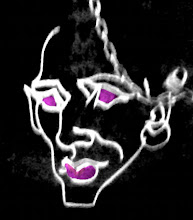VOUS AVEZ PERDU VOS ARTISTES
"What special good would it do to found an Establishment if the few who gave intimations of high talent were instinctively excluded? I wanted a chance to preach to the President and to the First Lady. "Speak to the people a little more," would have liked to say, "Talk on television about the things you do not understand. Use your popularity to be difficult and intellectually dangerous. This is more to greatness than liberal legislation." And to her I would have liked to go on about what the real meaning of an artist might be, of how the marrow of a nation was contained in his art, and one deadened artists at one's peril, because artists were not so much gifted as ENDOWED; they had been given what was secret and best in their parents and in all the people about them who had been generous or influenced them or made them, and so artists embodied the essence of what was best in the nation, embodied it in their talent rather than in their character, which could be small, but their talent—this fruit of all that was rich and nourishing in their lives—was related directly to the dreams and the ambitions of the most imaginative part of the nation. So the destiny of a nation was not separate at all from the FATE of its artists. I would have liked to tell her that every time an artist failed to complete the full mansion, jungle, garden, armory, or city of his work the nation was subtly but permanently poorer, which is why we return to obsessively to the death of Tom Wolfe, the broken air of Scott Fitzgerald, the gloomy smell of the vault which collects already the horror of Hemingway's departure. I would have liked to say to her that a war for the right to express oneself had been going on in this country for fifty years, and that there were counterattacks massing because there were many who HATED the artist now, that as the world dipped into the totalitarian trough of the twentieth century there was a mania of abhorrence for whatever was unpredictable. For all too many, security was the only bulwark against emptiness, eternity and death. The void was what America feared. Communism was the name they gave the void. The unknown was Communist, and the boys who grew beards, the people who walked their dog off leash. It was comic, but it was virulent, and there was a fanatic rage in much too much of the population. Detestation of the BEATNIK seethed like rabies on the mouths of small-town police officers.
"Oh, there was much I wanted to tell her, even–exit sociology, enter insanity–the obscene had a right to exist in the novel. For every fifteen-year-old who would be hurt by premature exposure, somewhere another, or two or three, would emerge from sexual experience which has been too full of moral funk onto the harder terrain of sex made alive by culture, that it was the purpose of culture finally to enrich all of the psyche, not just part of us, and damage to particular people in passing was a price we must pay. Thirty thousand Americans were killed each year by automobile crashes. No one talked of giving up the automobile: it was necessary to civilization. As necessary, I wanted to say, as art. Art in all its manifestations. Including the ride, the obscene, and the UNSAYABLE. Art was as essential to the nation as technology. I would tell her these things out of romantic abundance, because I liked her and i thought she would understand what one was talking about, because as First Lady she was queen of the arts, she was our Muse if she chose to be. Perhaps it would not be altogether a disaster if America has a Muse."
"Oh, there was much I wanted to tell her, even–exit sociology, enter insanity–the obscene had a right to exist in the novel. For every fifteen-year-old who would be hurt by premature exposure, somewhere another, or two or three, would emerge from sexual experience which has been too full of moral funk onto the harder terrain of sex made alive by culture, that it was the purpose of culture finally to enrich all of the psyche, not just part of us, and damage to particular people in passing was a price we must pay. Thirty thousand Americans were killed each year by automobile crashes. No one talked of giving up the automobile: it was necessary to civilization. As necessary, I wanted to say, as art. Art in all its manifestations. Including the ride, the obscene, and the UNSAYABLE. Art was as essential to the nation as technology. I would tell her these things out of romantic abundance, because I liked her and i thought she would understand what one was talking about, because as First Lady she was queen of the arts, she was our Muse if she chose to be. Perhaps it would not be altogether a disaster if America has a Muse."
Labels: artist, hyperlink, Jackie-O, literature, Mailer, muse


0 Comments:
Post a Comment
<< Home